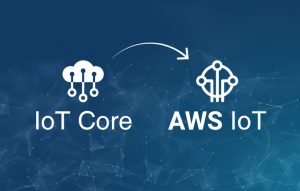The Industrial IoT and 5G network
The Industrial Internet of Things is going to improve with the 5G network. And this is going to be specifically essential for legacy to Communication Service Providers (CSP). This is because of the fact that they will have a possibly strong substitute for IoT Wide Area Networks (WAN) as compared to the present non-cellular IoT WAN networks in the process these days. The wireless carriers who invest in Low-power WAN (LPWAN) for IoT, at the same time also plan to run their own IoT LPWAN and offer higher bandwidth for IoT.
This is significant as IoT is projected to be very extensive with respect to its scope and influence virtually for every industry.
The deployment of 5G, according to Ericsson, could help telecom operators reduce per gigabyte data cost by 10 times, compared to current 4G networks.
Features of 5G networks
The Industrial IoT and manufacturing sectors are the major driving verticals for the projection and advancement of 5G networks. The main communication type required in the Industrial IoT domain is due to the concept of low latency and machine type communications.
Low – latency communication
Ultra-Reliable and Low-Latency Communication (URLLC) facilitates smooth communication amid machines in real-time applications. A decrease in communication latency and a parallel upsurge in reliability is a major requirement of industrial applications.
High – precision positioning
Where location detection is important in new markets, locating is subsequently said to be an essential requirement of 5G mobile networks systems. Real-time monitoring of assets and workforce helps in setting up continuous communication and association.
With the incorporation of 5G networks, there will be an amalgamation of a large number of sensors. A 5G network will enable a revolutionary functioning with its high bandwidth, new frequency bands, substantial MIMO and new architectural alternatives.
The 4G wireless mobile technology transformed the buyer marketplace, and 5G is set to renovate the entire business prospect.
Where 2G networks were aimed for voice, 3G for voice and data, 4G for broadband proficiencies, the 5G network is the fifth generation specifically for wireless communications technology. 5G will empower innovative usages that need very little potential and will have great dependability. Industrial applications comprising of considerable figures of sensors and actuators will be one of them. Engineers presume that it would be efficient enough to handle around 1,000 times additional mobile data than the cellular systems used these days.
5G network is projected to provide much-advanced data rates in comparison to 4G/LTE. It is also predicted that 5G will deliver ultra-low latency essential for some portable or mobile apps and services such as industrial automation, virtual reality, etc. 5G is going to embody a purpose-built technology. It is planned to assist connected devices along with the automation system. 5G is undoubtedly going to be a facilitator to Industry 4.0.
It has been quite a long time that the Industrial Revolution boosted the automated manufacturing industry and brought readymade things to the marketplace. The entry of 5G technology is going to impart the sector with its major revolution of recent times.
Industry 4.0 is going to empower smart factories as connected devices in these factories will be able to better communicate with each other to make decisions, indicating that 5G will be bringing a revolution very quickly.
Smart factories are going to use sensors for monitoring all facets of operational setups in the future. These factories will have connected devices which will enable manufacturers to collect the data and use the information to understand and modify their usage for best outputs. 5G network is definitely going to have a high capacity and equipped with the wireless flexibility. On top of this, its low-latency performance is going to prove it as the best choice for enterprises.
5G is foreseen as a big boom for various industries:
5G in factory regulation
5G will support regulation of factory tools for manufacturing process optimization both local and remote. 5G will be efficient in spectrum management, providing a low latency communication, and facilitating the controlling structures at the edge of the network. It is presumed to be a vigorous network that has the ability for service binding. It will be forceful, obtainable and save the system from cyber-attacks. 5G can supervise the development of the entire manufacturing process, which will be quicker and more efficient than before.
5G in energy monitoring
No matter how controlled and uneven the energy markets are, 5G has the potential to simplify it. For example, the incorporation of smart meters requires a lot of technologies. 5G has the capability to permit private networks and spectrum. And this supports the fact that 5G is comprised of the potential and strength of all the modest technologies. 5G will eventually result in making the incorporation of smart meters much easier and cost effective, making it the ideal integrated connectivity platform.
5G with Industrial IoT
5G and Industry 4.0 are going to prove the biggest advancement for the future of industrial production systems. And undoubtedly, IoT is presumed to play a crucial role in conjunction with other important technologies like Cyber-Physical Systems where the parameters such as sensors, actuators, tags, and readers will be composed and uploaded to a cloud platform. The data collected from multiple sources will be analyzed in actual-time and help in predicting the status of the equipment. This would help in taking proactive actions. Future analysis of the data will be used to get useful insights, showcasing the importance of the research for 5G networks and the complete IoT value chain.
The main factors leading to operative industrial automation like interoperability, connectivity, real-time process controller and virtualization need high-speed networks, reliable communication, low power consumption and secure systems. A network like 5G is expected to be most suitable and supportive for such automation.
“We believe that 20% of all data traffic in 2023 will be on 5G, and 20% in 2023 is potentially more than all kinds of traffic we have today — about 1.5 times more than the total of 4G/3G/2G traffic today,” Patrik Cerwall, Head of Strategic Marketing, Business Area Networks, Ericsson.









